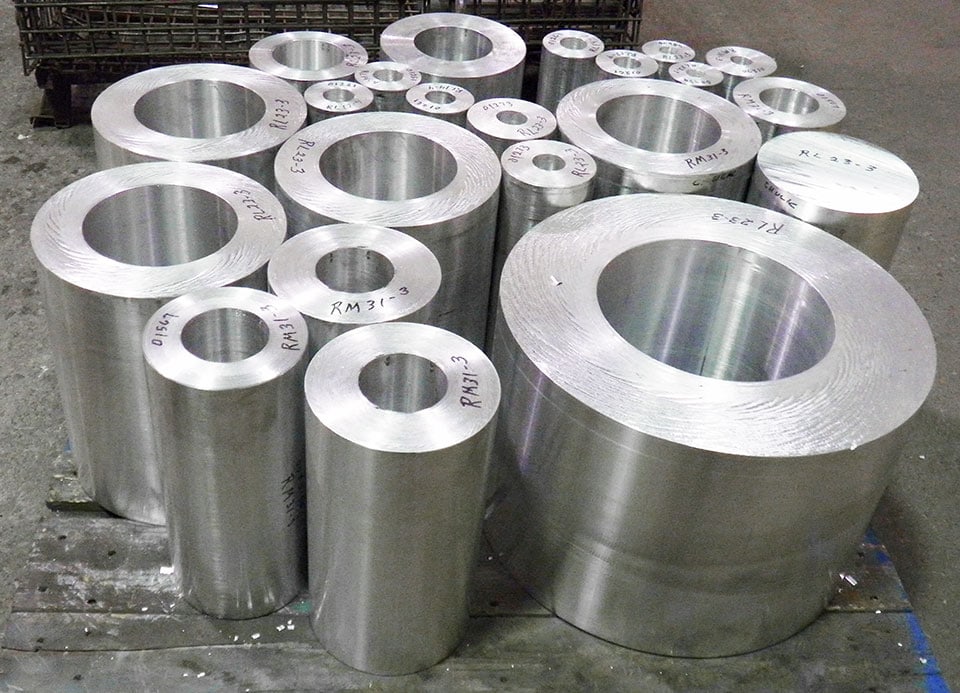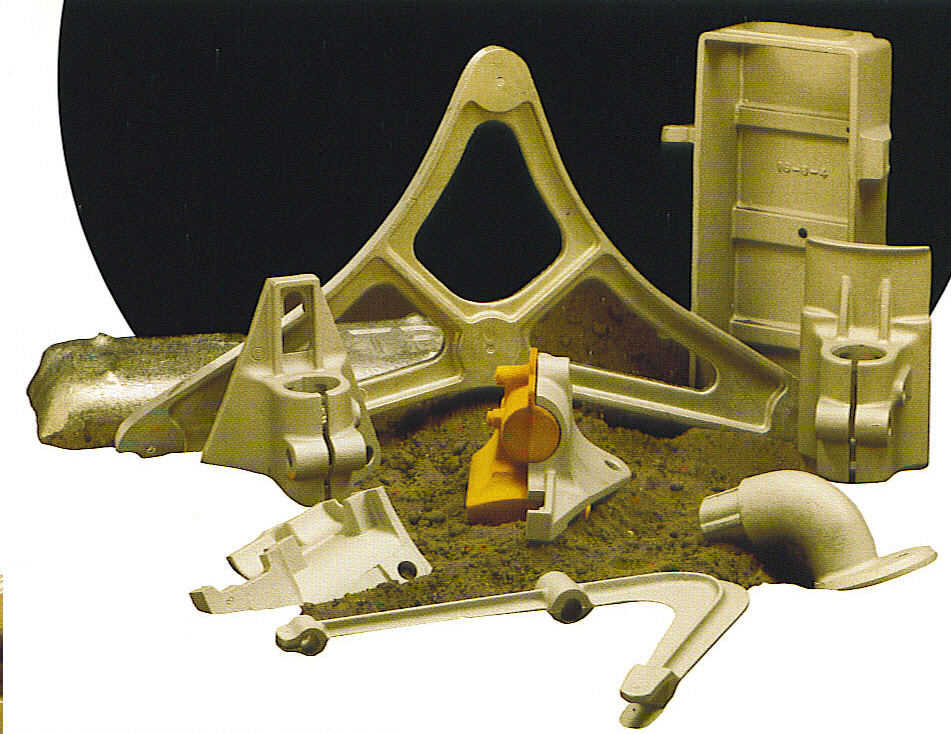Finding the Necessary Applications of Aluminum Castings Throughout Various Markets
Aluminum castings play a necessary role in numerous markets. Their long lasting and lightweight qualities contribute to technologies in automotive and aerospace industries. Additionally, they enhance building and construction integrity and consumer product style. As sustainability becomes a top priority, the environmental advantages of light weight aluminum spreadings additionally highlight their value. Recognizing the extensive applications of this material can expose insights into modern production techniques. What certain improvements are being made in these various sectors?
Automotive Industry Innovations

Aluminum castings play a vital duty in electrical automobiles, where weight decrease is extremely important for battery efficiency. With the integration of aluminum in engine blocks, transmission real estates, and structural elements, automakers can achieve remarkable toughness while preserving peak performance. As the demand for efficient and sustainable vehicles grows, the vehicle sector remains to accept aluminum spreading developments, positioning itself at the center of technical innovations and environmental obligation.
Aerospace Advancements
While the aerospace market continuously looks for methods to improve efficiency and effectiveness, innovations in aluminum spreadings have actually become an important consider attaining these objectives. The light-weight nature of aluminum substantially adds to sustain effectiveness, reducing general airplane weight without jeopardizing architectural integrity. Innovations in casting techniques, such as die spreading and financial investment casting, permit complex layouts that boost the rules of aerodynamics and performance.
Additionally, improvements in metallurgy have boosted the toughness and rust resistance of aluminum alloys, making them ideal for different aerospace applications, consisting of engine parts and body structures. The capability to create complicated shapes minimizes the variety of components needed, streamlining setting up processes and lessening maintenance needs. As aerospace producers increasingly turn to light weight aluminum spreadings, they are finding that these developments not just drive functional efficiency however additionally support sustainability objectives through minimized energy consumption throughout trip.
Building Applications
Aluminum castings play a crucial duty in the construction sector, offering a mix of strength, longevity, and lightweight residential properties that boost architectural integrity. Wisconsin Aluminum Foundry. These castings are made use of in a variety of applications, consisting of home window frameworks, door frameworks, and roof, where their resistance to deterioration and weathering is especially useful. Light weight aluminum castings add to energy effectiveness, as their lightweight nature decreases the general load on frameworks, facilitating easier transport and installment.
Furthermore, the versatility of aluminum enables complex styles and complicated geometries, meeting aesthetic needs without endangering architectural efficiency. In seismic areas, light weight aluminum spreadings can be used in essential architectural elements, offering significant benefits regarding adaptability and resilience. Generally, using aluminum spreadings in construction not just enhances the performance of structures yet additionally supports sustainable structure methods by making it possible for the usage of recyclable materials in building projects.

Consumer Goods Production
In durable goods making, aluminum castings play a crucial function in light-weight product layout, permitting much easier handling and enhanced performance. Their boosted longevity attributes contribute to the durability and reliability of daily products. This mix of benefits makes aluminum a favored material in the competitive customer goods market.
Lightweight Item Style
As home manufacturers significantly prioritize performance and sustainability, lightweight product design has become a critical element of durable goods growth. The integration of aluminum spreadings allows designers to create items that are not just lighter yet also more energy-efficient. This reduction in weight adds to lower transport costs and improved customer experience, as customers significantly seek easier-to-handle products. In addition, light-weight layouts assist in innovative looks, making it possible for brands to distinguish themselves in an open market. The adaptability of aluminum enables complex shapes and kinds, boosting overall style flexibility. Lightweight product style is becoming essential for companies aiming to satisfy contemporary consumer needs while sticking to ecological factors to consider. This pattern is reshaping exactly how items are conceptualized and manufactured throughout numerous markets.
Enhanced Sturdiness Functions
While modern-day customers require items that are both light-weight and visually pleasing, improved longevity attributes have actually come to be equally vital in consumer products making. Light weight aluminum castings offer remarkable strength-to-weight ratios, permitting producers to develop things that hold up against daily deterioration. The inherent deterioration resistance of aluminum assurances that items keep their look and capability with time, lowering the requirement for frequent substitutes. In addition, casting strategies enable the production of smooth layouts that boost architectural integrity. As a result, producers can supply durable goods that not only meet efficiency expectations yet additionally offer durability. This focus on resilience not only enhances client contentment but likewise aligns with check out here sustainability goals by minimizing waste and advertising liable usage.
Electrical and Electronics Field
The electrical and electronic devices sector increasingly relies upon light weight aluminum spreadings for their lightweight, resilient, and extremely conductive residential or discover here commercial properties. These spreadings are essential in manufacturing different elements, consisting of real estates, enclosures, and heat sinks. Their low density enables minimized general weight in electronic gadgets, enhancing transportability without compromising performance. Additionally, aluminum's excellent thermal conductivity is important for dissipating warmth generated by digital elements, ensuring excellent functioning and long life.
Additionally, light weight aluminum spreadings provide excellent rust resistance, which is essential for maintaining digital honesty in different environments. The capacity to produce complex forms and detailed styles via casting techniques even more supports development in item growth, enabling makers to fulfill certain technological requirements. As the need for high-performance and energy-efficient digital tools remains to grow, aluminum castings are positioned as a vital product, assisting in innovations in technology throughout the sector. Their versatility and reliability make them vital in the modern-day electric and electronic devices landscape.
Sustainability and Ecological Effect
Identifying the expanding problem for ecological sustainability, the aluminum casting market has made considerable strides in lowering its ecological footprint. The manufacturing of light weight aluminum castings currently significantly makes use of recycled materials, lessening power consumption and basic material removal. This shift not just conserves sources yet likewise decreases greenhouse gas exhausts related to key aluminum manufacturing.
Additionally, innovations in technology have caused more reliable spreading procedures, better lowering waste and improving power efficiency. Several makers are adopting lasting practices such as closed-loop systems that recycle water and minimize commercial waste.
Additionally, aluminum's lightweight nature improves fuel performance in transportation markets, adding to reduced exhausts over the lifecycle of vehicles. As the industry continues to introduce and prioritize sustainability, aluminum spreadings are poised to play an essential function in promoting ecologically accountable techniques across various industries, aligning with global efforts to battle climate change and promote sustainable growth.
Frequently Asked Inquiries
What Are the Perks of Aluminum Castings Over Various Other Materials?
Aluminum castings supply lightweight residential properties, excellent corrosion resistance, and excellent thermal conductivity. In addition, they allow detailed styles, lower manufacturing costs, and provide improved toughness, making them useful compared to conventional materials like steel or iron.
How Are Light Weight Aluminum Castings Produced?
Aluminum castings are created through procedures like sand spreading, pass away casting, and investment casting. Molten aluminum is put right into mold and mildews, permitted to cool down, and afterwards removed, resulting in precise and resilient components for different applications.
What Is the Common Lifespan of Aluminum Castings?
The common life-span of aluminum castings differs between 10 to half a century, depending on environmental aspects, use problems, and alloy structure. Proper maintenance and care can substantially expand their longevity and efficiency in numerous applications.
Can Aluminum Castings Be Recycled?
Yes, aluminum castings can be recycled efficiently (Wisconsin Aluminum Foundry). The recycling process keeps the steel's residential properties, making it a lasting option for various applications, subsequently contributing to environmental preservation and source administration within several industries
What Industries Are Arising for Aluminum Spreading Applications?
Emerging industries for light weight aluminum spreading applications consist of electrical vehicle manufacturing, renewable resource industries, aerospace developments, and clinical innovation. These industries leverage aluminum's light-weight, resilient residential properties to boost and innovate efficiency in numerous items and systems.
While the aerospace sector constantly looks for means to improve efficiency and performance, innovations in light weight aluminum spreadings have actually emerged as an important element in achieving these objectives. Aluminum castings play an essential role in the construction market, supplying a combination of strength, longevity, and light-weight buildings that boost architectural stability. In customer items manufacturing, aluminum spreadings play an important function in lightweight item design, enabling for easier handling and boosted performance. The electrical and electronics market progressively depends on aluminum spreadings for their light-weight, long lasting, and very conductive buildings. Light weight aluminum spreadings are generated through procedures like sand casting, die casting, and investment spreading.